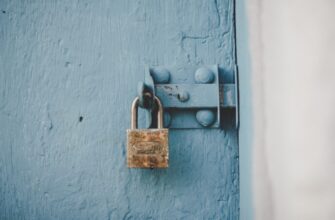Why Guarding Your Accounts from Hackers Is Non-Negotiable
In today’s digital world, your online accounts are gateways to your personal life, finances, and identity. For beginners, the thought of hackers breaching your email, social media, or bank accounts can feel overwhelming—but ignoring security isn’t an option. A single weak password or suspicious link can lead to stolen data, financial loss, or even identity theft. This guide simplifies how to guard account from hackers for beginners, using practical steps anyone can implement. No tech expertise needed—just a commitment to protecting what’s yours.
Common Hacking Threats Every Beginner Should Know
Hackers use sneaky tactics to access accounts. Understanding these helps you stay vigilant:
- Phishing Scams: Fake emails or messages mimicking trusted sources (like banks) trick you into sharing passwords.
- Weak Passwords: Simple passwords like “123456” or “password” are easily guessed or cracked.
- Malware: Malicious software from downloads or ads logs your keystrokes or steals data.
- Unsecured Wi-Fi: Public networks let hackers intercept your unencrypted data.
- Data Breaches: When companies leak user info, hackers exploit reused passwords across accounts.
7 Essential Steps to Guard Your Accounts from Hackers
Start with these foundational practices to build a strong defense:
- Create Uncrackable Passwords: Use 12+ characters with upper/lowercase letters, numbers, and symbols. Avoid personal info like birthdays.
- Enable Two-Factor Authentication (2FA): Add a second verification step (e.g., a text code or app) for account logins.
- Update Software Regularly: Install patches for your OS, apps, and antivirus to fix security flaws.
- Recognize Phishing Attempts: Never click suspicious links. Check sender addresses and look for typos.
- Use Unique Passwords Everywhere: Never reuse passwords—compromise one account, compromise all.
- Secure Your Wi-Fi: At home, use WPA3 encryption. In public, avoid sensitive tasks or use a VPN.
- Review Account Activity: Check login histories monthly for unrecognized devices or locations.
Advanced Protection Strategies for Extra Security
Once basics are covered, level up with these tools:
- Password Managers: Apps like Bitwarden or 1Password generate/store complex passwords securely.
- Biometric Authentication: Use fingerprint or face ID where available for hack-resistant access.
- Encrypted Messaging: Switch to Signal or WhatsApp for sensitive chats to guard against eavesdropping.
- Credit Monitoring Services: Free tools like Credit Karma alert you to suspicious financial activity.
What to Do If Your Account Is Hacked
Act fast to minimize damage:
- Change Passwords Immediately: Start with the breached account, then update others if passwords were reused.
- Enable 2FA: If not already active, add it now to lock out intruders.
- Scan for Malware: Run a full antivirus check on your devices.
- Notify Contacts: Warn friends if scams were sent from your account.
- Report to Authorities: Use platforms like reportfraud.ftc.gov in the U.S. for identity theft.
Frequently Asked Questions (FAQ)
Q: How often should I change my passwords?
A: Only when a breach occurs or you suspect compromise. Focus more on using strong, unique passwords consistently.
Q: Is two-factor authentication really necessary?
A: Absolutely. It blocks 99.9% of automated attacks, making it the easiest way to guard accounts from hackers for beginners.
Q: Can antivirus software prevent all hacks?
A: No—it mainly stops malware. Combine it with strong passwords, 2FA, and smart browsing habits for full protection.
Q: What’s the biggest mistake beginners make?
A: Password reuse. Using one password across multiple accounts is like having one key for your house, car, and bank vault.
Q: Are public Wi-Fi networks safe with a VPN?
A: Safer, but not foolproof. A VPN encrypts data, but avoid accessing critical accounts (like banking) on any public network if possible.








